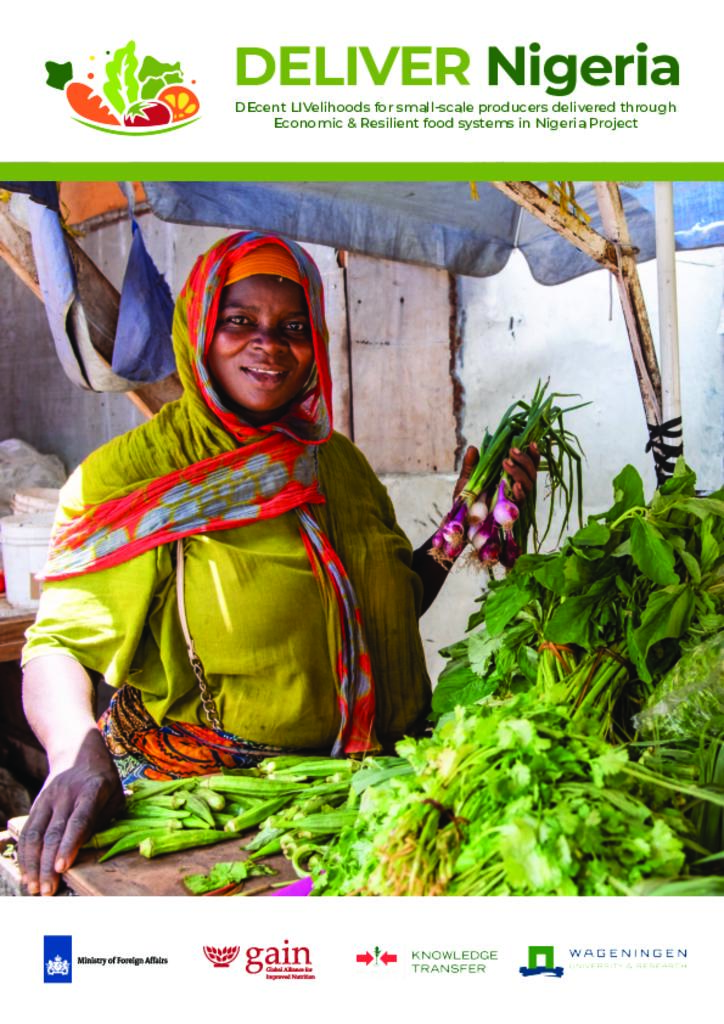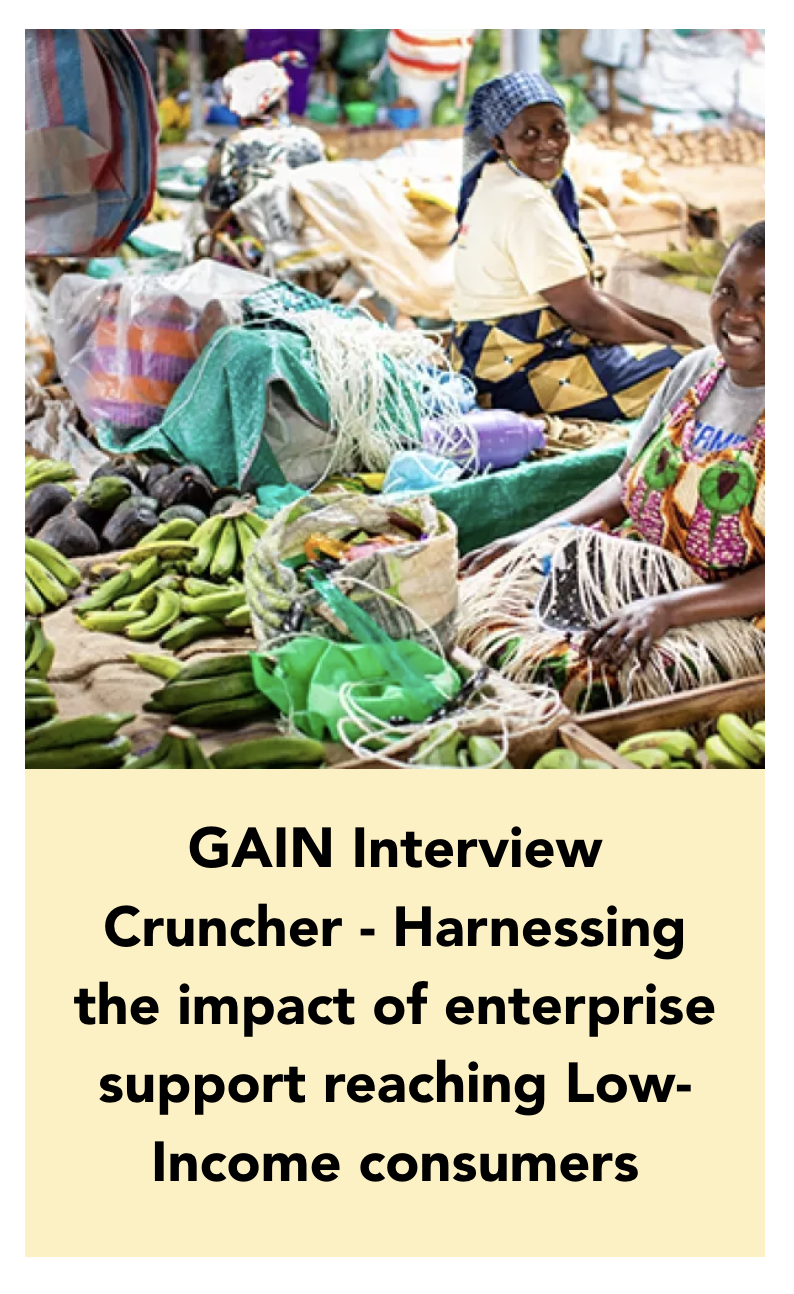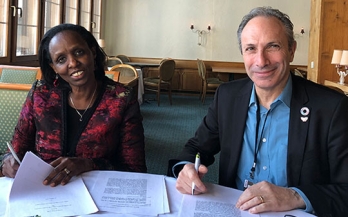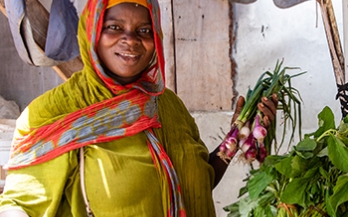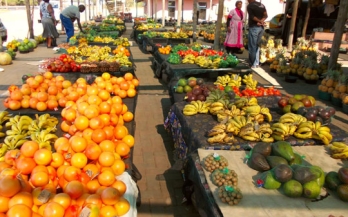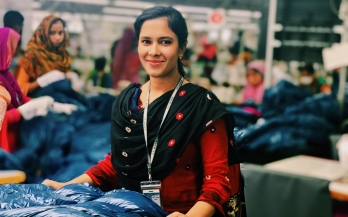

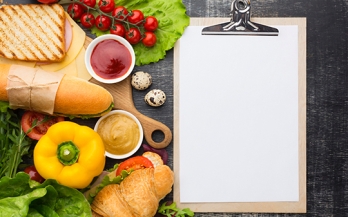
Nutrition-lens Investing – Finally on the Menu?
As part of a team that has been working on nutrition-focused investing for several years, sometimes feeling like we were the only ones at the table, it’s been an exciting few months! Nutrition as an investment theme really seems to be resonating more widely and gaining traction in diverse places.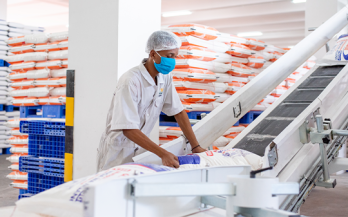
Political Economy Decision Toolkit: Anticipating Policy Bottlenecks to Food System Transformation
Food system transformation requires long-term commitment, but we live in a world of short-term political cycles and unforeseen crises that can deter momentum and reset policy priorities. Given that political economy dynamics can stymie efforts to implement food systems transformation agendas, GAIN has partnered with the International Food Policy Research Institute (IFPRI) to develop a Political Economy Decision Toolkit that identifies possible bottlenecks ex-ante and utilizes different sets of strategies to overcome them. The Toolkit was informed by discussions with GAIN’s policy advisors across Africa and Asia and revolves around six main domains that can be applied to either a narrow food policy issue, such as expanding school meals programmes, or to a broader topic, such as implementing national food system pathways.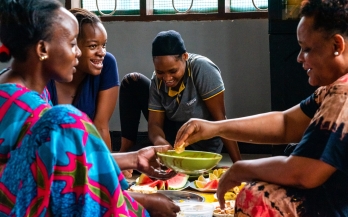
From fast food to fresh: How to shift Kenya's eating habits to nutritious, farm-to-fork foods
Kenya is grappling with a triple burden of malnutrition where undernutrition, micronutrient deficiencies, and overnutrition and associated diet-related non-communicable diseases coexist. An estimated 23 million Kenyans are undernourished. The Kenya Demographic Health Survey (2022) revealed that 18% of children under age 5 are stunted, 5% are wasted, and 10% are underweight. The survey found rates of obesity that were equally alarming—17% of women and 4% of men. These figures are far above global health targets, indicating that we still have a long way to go.
Statement by the Paris N4G Private Sector Working Group: Driving Collective Action to Combat Malnutrition
ATNI (Access to Nutrition Initiative), the Global Alliance for Improved Nutrition (GAIN), and Paris Peace Forum (PPF) have received the official mandate to facilitate the Paris 2025 Nutrition for Growth (N4G) Private Sector Working Group (PSWG). The working group drives private sector collaboration for the 2025 N4G Summit, facilitating strategic engagement and ensuring meaningful contributions towards advancing global nutrition outcomes.
DELIVER Nigeria
DEcent LIVelihoods for small scale producers delivered through Economic & Resilient food systems in Nigeria
Project Summary
DELIVER Nigeria is a transformative three-year project (July 2024 - June 2027) designed to enhance the livelihoods of smallholder vegetable farmers in Kaduna and Kano states. This initiative, led by the Global Alliance for Improved Nutrition (GAIN) in partnership with East-West Seed Knowledge Transfer Foundation (EWS-KT) and Wageningen University and Research (WUR), addresses key challenges such as low yields, limited market access, high postharvest losses, and inadequate finance. The project will:
- Build capacity of farmers in vegetable production and marketing.
- Enhance climate resilience and reduce postharvest losses.
- Strengthen sector professionals' expertise.
- Foster market connections and improve access to finance.
- Promote vegetable consumption.
PROJECT GOAL
- Enhancing Livelihoods: Empower smallholder farmers, with a focus on youth and women, to increase income and improve livelihoods.
- Promoting Healthier Diets: Encourage the consumption of a variety of vegetables to foster healthier dietary habits within the community.

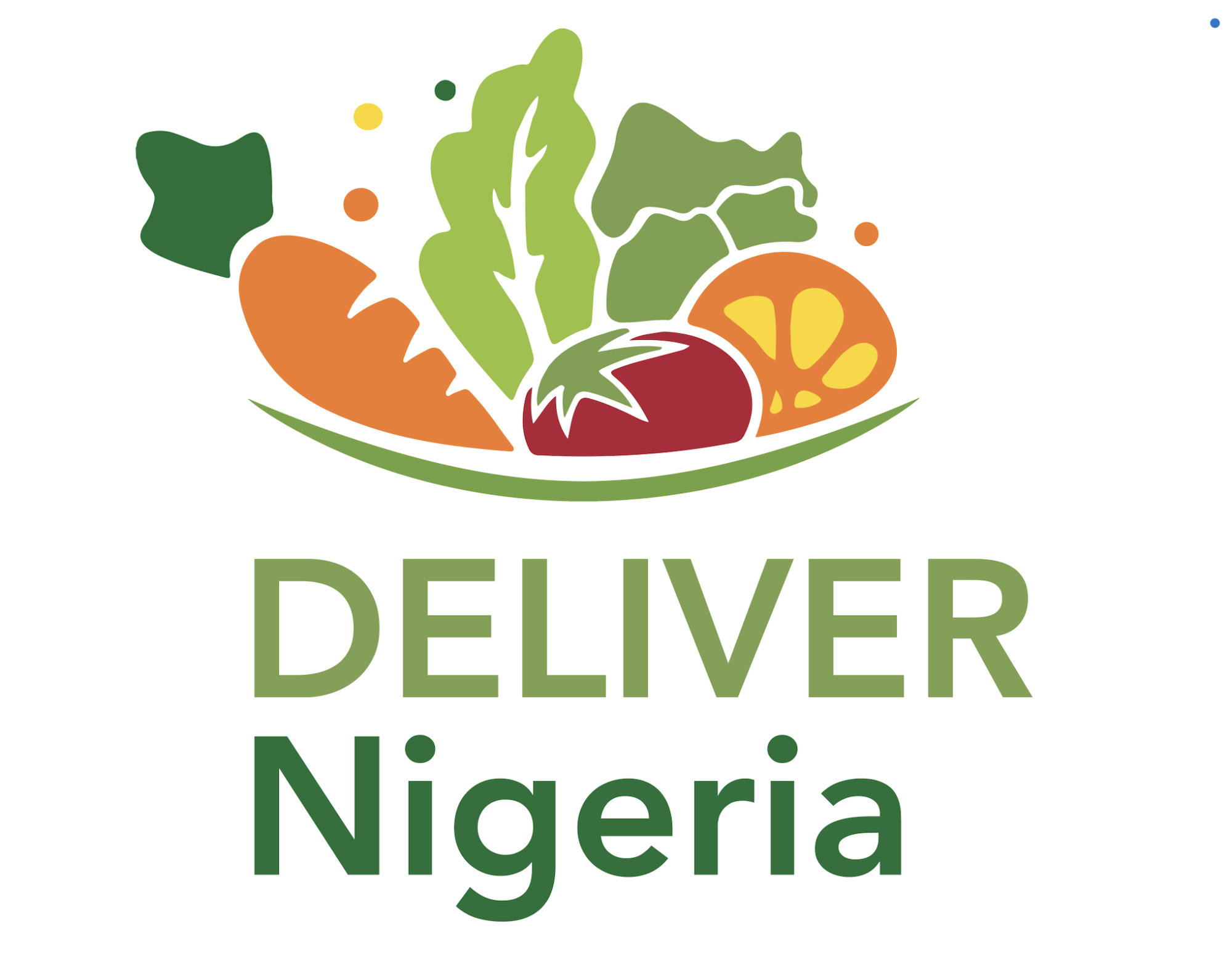
Key Outcomes
![]() Immediate Outcomes:
Immediate Outcomes:
- Smallholder farmers are engaged in diverse vegetable production as a means of generating income.
- Consumers show increased interest in purchasing new vegetable varieties.
- Improved vegetable yields among smallholder farmers, especially youth and women.
- Better storage and safety of vegetables, reducing post-harvest losses.
- Enhanced access to finance, allowing farmers to scale up their businesses.
![]() Intermediate Outcomes:
Intermediate Outcomes:
- Year-round production of diverse vegetables for consumption and income generation.
- Availability of a wider variety of affordable vegetables for consumers.
- Safe, quality vegetables reach markets.
- Improved financial access for farmers to expand their operations.
![]() Ultimate Outcomes:
Ultimate Outcomes:
- Increased consumption of diverse, fresh, and preserved vegetables.
- A more competitive input and output markets developed to enhance affordability and availability of vegetables.
- Higher incomes for smallholder farmers, enabling business growth.
![]() Empowering Future Generations
Empowering Future Generations
With a goal of involving 50% youth and 30% women among key farmers, DELIVER Nigeria will harness the drive and innovation of these groups. The project aims to train 25,000 new smallholder farmers over three years, resulting in substantial improvements in vegetable yields, market access, and income generation.
Key Activities
- Organize community events to promote the production and consumption of vegetables while simultaneously launching campaigns in terminal markets to encourage the purchase of diverse varieties of vegetables.
- Conduct market surveys and track prices to better understand consumer preferences and market trends.
- Build the capacity of farmers on vegetable production techniques, Good Agronomic Practices (GAP), and sustainable irrigation solutions (including climate-smart practices).
- Build the capacity of agri-input dealers to effectively support farmers.
- Build capacity of smallholder farmers on best pre-and post-harvest practices and technologies to improve efficiencies, food safety, and reduce loss and waste.
- Build the capacity of sector professionals on crop agronomy, safe handling & storage of chemicals & fertilizers, as well as agro-blending learning trajectories.
- Build the capacity of farmers on financial planning and business management (micro-enterprise, agribusiness investment, financial literacy, record keeping, business models, etc.).
- Support smallholder farmers to establish financial inclusion platforms like Village Savings and Loan Associations (VSLAs) to increase savings.
- Facilitate linkages between farmers and microfinance institutions, including those led by the government and other entities.
- Establish 1,000 demonstration plots to showcase advanced agricultural techniques.
- Enhance business and market planning skills for 25,000 previously trained farmers.
Publications and Resources
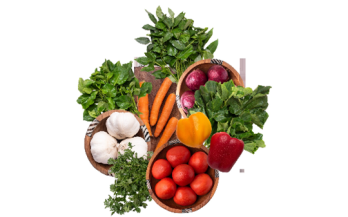
Consume diverse vegetables for improved nutrition
To boost growth, development and future wellbeing, a range of diverse fruits and vegetables should form part of all our regular meals. A diet rich in fruits and vegetables can help lower blood pressure, reduce the risk of cardiovascular diseases, such as heart disease and stroke, prevent some types of cancer, and lower the risk of eye and digestive problems. Non-starchy vegetables and fruits, like apples, pears and green leafy vegetables may even promote weight loss.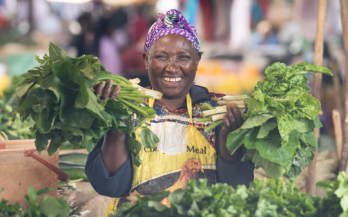
Reaching Lower-Income Consumers with Nutritious Foods: Distribution Hubs, Direct Sales, and Supporting Distributors and Retailers
Serving the needs of lower-income consumers requires getting food products to where they are—which often includes remote rural areas as well as underserved urban neighbourhoods. This makes distribution a key, but also costly, aspect of the business model. Using a ‘hub’ model, in which aspects of distribution are grouped together instead of done separately, can improve efficiency and cost-sharing, reducing costs overall.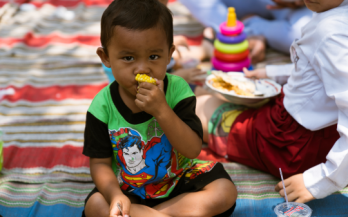
Billions worldwide consume inadequate levels of micronutrients critical to human health
More than half of the global population consumes inadequate levels of several micronutrients essential to health, including calcium, iron, and vitamins C and E, according to a new study by researchers at Harvard T.H. Chan School of Public Health, UC Santa Barbara (UCSB), and the Global Alliance for Improved Nutrition (GAIN). It is the first study to provide global estimates of inadequate consumption of 15 micronutrients critical to human health.Africa Food Systems Forum
(Formerly AGRF)
Background
The Africa Food Systems Forum will host its annual summit from September 2-6, 2024 in Kigali Convention Centre, Rwanda.
Africa’s Food Systems Forum, formerly AGRF, is the world’s premier forum for African agriculture and food systems, bringing together stakeholders to take practical actions and share lessons that will move African food systems forward. Africa Food Systems Forum is designed to energise political will and advance the policies, programs, and investments required to achieve an inclusive and sustainable food systems transformation.
This year’s summit will “spotlight the continental agenda on food systems, showcase innovative approaches, solutions, proven business models, best practices and latest technologies that could transform agriculture and food systems to ensure food and nutrition security in Africa while creating jobs and opportunities for youth and women.”
GAIN at AFSF
Scroll through the list to discover all the events GAIN is leading and participating in at AFSF 2024
| Date | Time | Session | Organiser(s) | Type of event |
|---|---|---|---|---|
| 2-Sep | 11:45-12:45 | Mobilising Private Sector for Investment in Nutrition | AGRA, GAIN, Shamba, ATNI, AUDA-NEPAD | Side-event |
| 3-Sep | 9:00-11:00 | Official opening ceremony | AFSF | Plenary |
| 3-Sep | 9:00-11:00 | Parliamentary Network Forum: Championing Food Systems through PMs in Africa | AFSF | Plenary |
| 3-Sep | 14:00-16:00 | Where Are We on Scalable Innovative Food Systems Policies & Flagships Programs | AFSF | Plenary |
| 3-Sep | 14:00-15:00 | Financing Inclusive Food Systems by Chemonics | Chemonics | Knowledge session |
| 4-Sep | 9:00-11:00 | Food Systems and Nutrition | AFSF | Plenary |
| 4-Sep | 10:00-17:00 | Knowledge Market Platform | AFSF | Parallel session |
| 5-Sep | 9:30-10:30 | Food Systems Transformation & Nutrition Accountability | GNR, FCDO, FAO, GAIN, ATNI | Side-event |
| 5-Sep | 9:15-10:30 | Ending Malnutrition through Policy Implementation | GAIN, CARE, Dutch MFA | Side-event |
Speakers from GAIN

Dr. Lawrence Haddad
Executive Director, GAIN

Mduduzi Mbuya
Director, Knowledge Leadership

Penjani Mkambula
Chief Technical Officer

Ruth Okowa
Country Director, Kenya

Michael Ojo
Country Director, Nigeria

Gaspar Cuambe
Country Director, Mozambique

Milka Shitandi Omukuba
Lead, CASCADE
Contact us

Grace Thuo
Head of Communications
